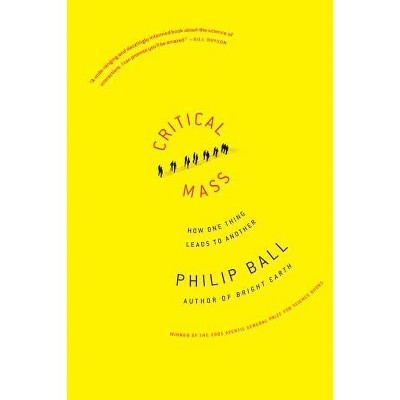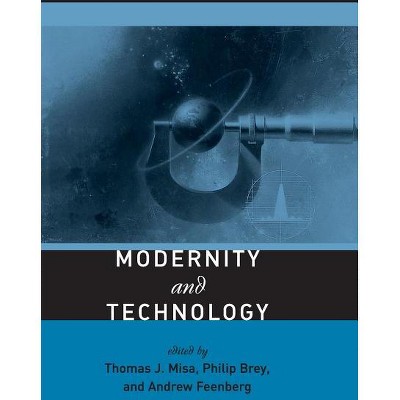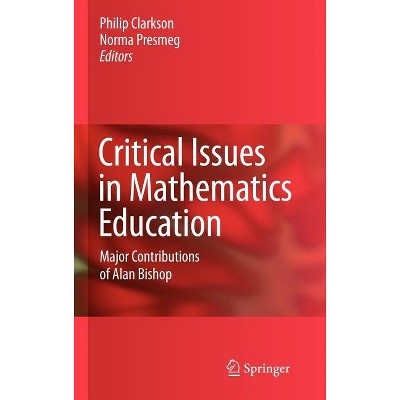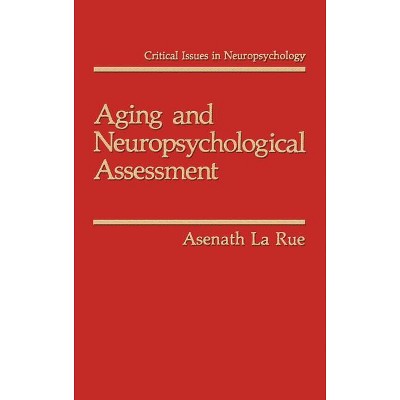Sponsored

The Metaverse: A Critical Assessment - (Springerbriefs in Ethics) by Philip Brey (Paperback)
In Stock
Sponsored
About this item
Highlights
- This book offers an extensive assessment of the nature and feasibility of the metaverse and is the first to critically examine its social and ethical implications.
- About the Author: Philip Brey is Professor of Philosophy and Ethics of Technology at the Department of Philosophy, University of Twente, the Netherlands.
- 133 Pages
- Science, Philosophy & Social Aspects
- Series Name: Springerbriefs in Ethics
Description
Book Synopsis
This book offers an extensive assessment of the nature and feasibility of the metaverse and is the first to critically examine its social and ethical implications. The metaverse is, in essence, an envisioned future merger of virtual and augmented reality (VR and AR) and the internet, enabling real-time immersive interaction and activities like work, play, socializing, and entertainment. Major tech companies like Meta, Microsoft, Apple and NVIDIA have been investing billions in metaverse technologies, with generative AI accelerating progress. This book examines how these efforts could culminate in the metaverse, exploring its potential forms, implications, and the social and ethical challenges it may pose--along with recommendations for responsible innovation. The book is aimed at stakeholders shaping the metaverse--developers, creators, investors, business leaders, and thought leaders in technologies like VR, AR, Web3, blockchain, and AI. It also serves scholars and students in applied ethics, the social sciences, and the humanities, including fields such as media studies, psychology, and law. General readers interested in the metaverse and emerging technologies will find it both accessible and engaging. Philip Brey is Professor of Philosophy and Ethics of Technology at the Department of Philosophy, University of Twente, the Netherlands. He is the former president of the Society for Philosophy and Technology (SPT) and the International Society for Ethics and Information Technology (INSEIT).From the Back Cover
This book offers an extensive assessment of the nature and feasibility of the metaverse and is the first to critically examine its social and ethical implications. The metaverse is, in essence, an envisioned future merger of virtual and augmented reality (VR and AR) and the internet, enabling real-time immersive interaction and activities like work, play, socializing, and entertainment. Major tech companies like Meta, Microsoft, Apple and NVIDIA have been investing billions in metaverse technologies, with generative AI accelerating progress. This book examines how these efforts could culminate in the metaverse, exploring its potential forms, implications, and the social and ethical challenges it may pose--along with recommendations for responsible innovation. The book is aimed at stakeholders shaping the metaverse--developers, creators, investors, business leaders, and thought leaders in technologies like VR, AR, Web3, blockchain, and AI. It also serves scholars and students in applied ethics, the social sciences, and the humanities, including fields such as media studies, psychology, and law. General readers interested in the metaverse and emerging technologies will find it both accessible and engaging.
Philip Brey is Professor of Philosophy and Ethics of Technology at the Department of Philosophy, University of Twente, the Netherlands. He is the former president of the Society for Philosophy and Technology (SPT) and the International Society for Ethics and Information Technology (INSEIT).
About the Author
Philip Brey is Professor of Philosophy and Ethics of Technology at the Department of Philosophy, University of Twente, the Netherlands. In his research, he investigates social, political and ethical issues in emerging technologies. His main focus is on artificial intelligence, extended reality, and other digital technologies. He was one of the first scholars to discuss the ethical implications of virtual reality. Brey is former president of the International Society for Ethics and Information Technology (INSEIT) and of the Society for Philosophy and Technology (SPT). He has co-edited books on modernity and technology (MIT Press), well-being and technology (Routledge, Springer) and responsible innovation (Science Press, China). He is winner of the 2022 Weizenbaum Award for excellence in the field of digital ethics. He currently leads the ten-year research programme Ethics of Socially Disruptive Technologies (ESDiT), with over a hundred researchers and a budget of 27 million.
Shipping details
Return details
Frequently bought together

Trending Non-Fiction
















